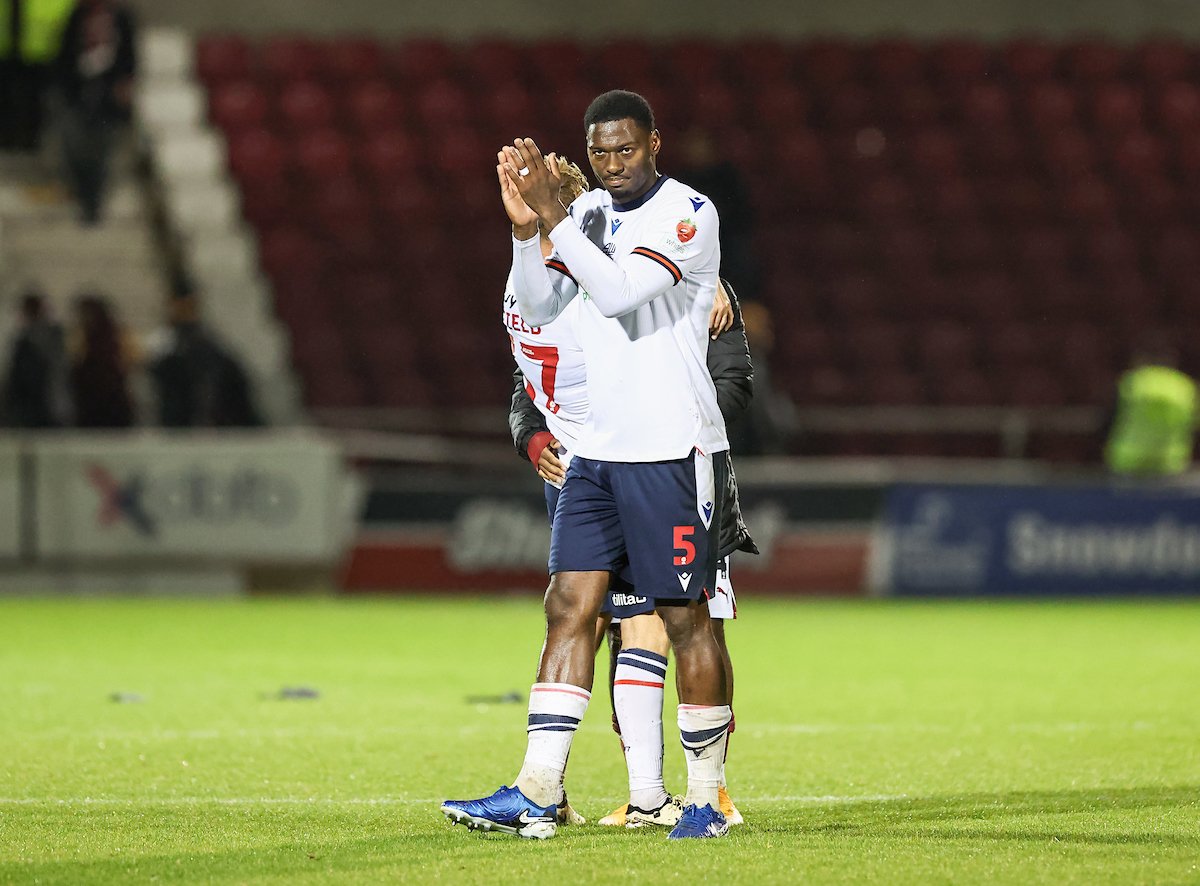Ricardo Santos: The Problem or The Solution
This season has not been as successful as many Bolton Wanderers fans would have hoped, the club have started the league poorly and questions have been asked about the coaching staff and the playing squad. At the heart of this inquest has been former captain and three-time PFA League One Team of the Year defender, Ricardo Santos.
The Portuguese defender’s start to the season has not been a fair representation of his time at the Wanderers and the criticism he has received has been non-stop. However, he is not the only reason Bolton have been poor this season, but is he the problem or the solution?
How Good is Ricardo Santos?
Despite many fans calling for him to be dropped, in his time at Bolton Santos has been almost an ever-present in the centre of the Wanderers back three. This is his fifth season at the club and the Portuguese defender has played all 11 games this season as the central defender. In a 3-5-2 and a 3-4-2-1 system, the central defender can often be one of the most important players on the pitch because they organise the whole team out of possession, and are at the heart of the play when in possession.
Credit @MarcIles on X
Santos has been trusted with this role since Ian Evatt signed him in August 2020. Since then, the 6’5 defender has played an average of 43.75 games for Bolton Wanderers (not including this season), playing a key role in their promotion to League One and the EFL Trophy victory. In every season at the Trotters, Ricardo Santos has been in either the EFL or PFA Team of the Season and has been key to any Bolton Wanderers success.
However, recent weeks have seen doubt increase in Santos’ ability and many have questioned whether he should be starting or even at the club. It is clear that Ian Evatt has a different opinion concerning Santos’ role at the club going forward because he has continued to play him despite what has happened off the pitch.
The New System
Bolton started the season with a 3-4-2-1 formation, a new formation but not a new system as many of the principles from the last season remained. However, the poor start to the season has seen Evatt make changes to his system that aren’t just reverting back to the original 3-5-2 shape.
It is well known that Bolton like to dominate the ball and often have over 60% possession and a high number of passes. This was the case at the beginning of the season as well; in the 0-0 draw vs Wrexham on the opening day of the season, the Wanderers had 68% possession and made 445 passes. As the central defender, Ricardo Santos was crucial to their possession and as a result, made 52 passes.
However, dominating the ball is no longer the biggest focus for Bolton, and the numbers have changed for Santos and the team. Against Crawley, across the 90 minutes, Ian Evatt’s team made just 165 passes and the Portuguese defender made just 21. This was also the case against Reading in the previous fixture, the team made 239 passes and Santos made only 22.
The change of system has come at a time where it was necessary to win games and for Santos to improve. Since the change in system, the whole team have benefited and Bolton have picked up maximum points in the league. Also, Ricardo Santos isn’t at the centre of attention and instead is allowed to think of defending first to help his performances. When his confidence returns, he will begin to take more responsibility again.
‘Dwelling on the Ball’
A common criticism of Santos is that he ‘dwells on the ball’ or takes too long to play a pass in build-up or in general possession. However, what many fans call ‘dwelling on the ball’ is likely a tactical instruction from Ian Evatt and a tactic that many coaches have started to use as well.
Roberto De Zerbi popularised this tactic at Brighton and Hove Albion with Lewis Dunk and Adam Webster. He would instruct his centre back to place their studs on the ball and bait the opposition into pressing them. This may sound counterintuitive because you have invited pressure, but this creates more space in other areas.
Steele puts his studs on the ball, baiting Havertz to press him. He passes to Dunk and he passes to Van Hecke, who is now open.
At Brighton, Dunk would often bait the press and then pass to his centre back partner because that player would have an open pass into midfield. De Zerbi described this tactic as a ‘false transition’ because he created situations that were like a counterattack as they had drawn the opposition strikers, wingers, and some midfielders. This video by The Athletic explains this further.
Santos is very good on the ball and most of his time on the ball is spent following tactical instruction. He is a good defender but isn’t performing to his incredibly high standards because of the pressure he feels from the outside. With the right circumstances, he is the solution.



